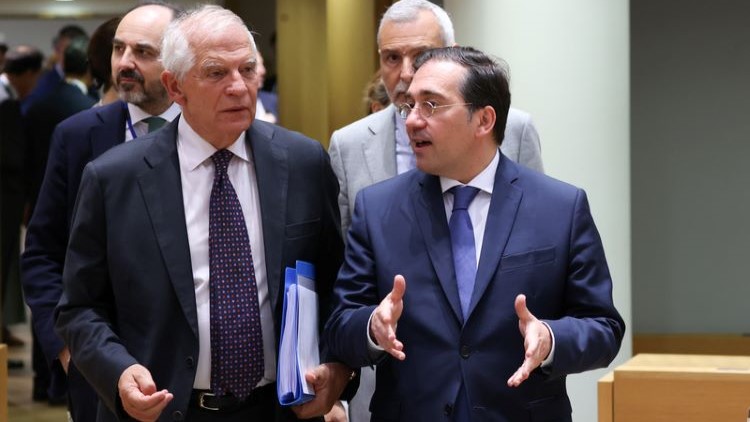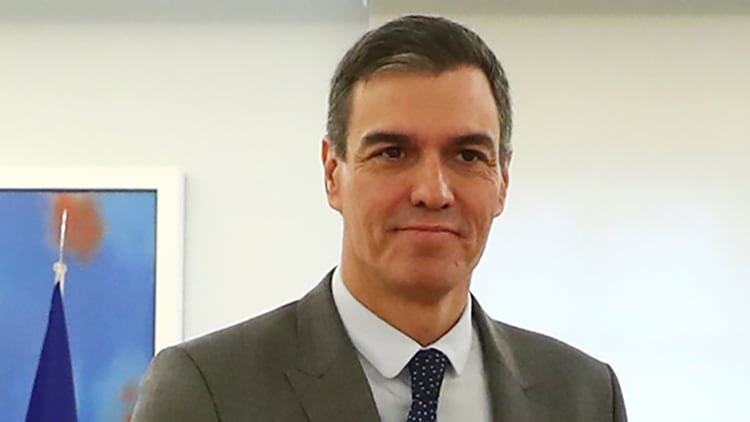Eduardo González
The acting Minister of Foreign Affairs, José Manuel Albares, will participate today in Brussels in a new meeting of the EU Foreign Affairs Council (FAC), in which, along with the usual issues of Ukraine, the Middle East and Nagorno-Karabakh, a new point will be addressed: the European Economic Security Strategy, proposed by the Commission and by Borrell to address the risks and vulnerabilities of Europe in the face of crises, “hostile economic actions” and “geopolitical tensions”.
The FAC session, chaired by EU High Representative for Foreign and Security Policy Josep Borrell, will begin with a discussion on Russian aggression against Ukraine, following a briefing in which Ukrainian Foreign Minister Dmytro Kuleba will report by videoconference on the situation on the ground, Ukraine’s needs in the run-up to winter and the situation in the Black Sea corridor.
The ensuing ministerial discussion will focus on EU support and long-term security commitments, support for the Ukrainian peace formula, restrictive measures against Moscow and Russia’s immobilized assets and accountability for war crimes. Reference is also expected to be made to the Commission’s enlargement proposal, published on November 8, in which EU executive chairwoman Ursula von der Leyen recommended that the European Council give the go-ahead to start accession talks with Ukraine and Moldova.
The FAC will also address the situation in Israel and the Gaza Strip and in the region as a whole, building on the discussion at the last Foreign Affairs Council in October and the conclusions of the European Council, the informal Foreign Ministers’ videoconference on October 10 and the European leaders’ videoconference on October 17.
Ministers are expected to focus their discussion on the EU’s main lines of action, namely the importance of EU unity, the need to protect civilians in accordance with international law and international humanitarian law, the need to prevent the spread of the conflict in the region and the long-term commitment to the peace process based on the two-state solution, including the Peace Day Effort initiative. In this regard, the Council recalled that, among the conclusions of the European Council of October 26-27, 2023, is “the readiness of the EU to contribute to reviving a political process based on the two-state solution, as well as support for an International Peace Conference to be organized in the near future”, which was proposed by Spain.
Regarding the conflict between Armenia and Azerbaijan over the control of Nagorno-Karabakh, the FAC will discuss the role of the EU in strengthening Armenia’s resilience and democratic institutions and in supporting the normalization process. Ministers are also expected to discuss how to enhance the EU Mission to Armenia. The Council will be followed by an EU-Western Balkans ministerial meeting with the participation of the foreign ministers of Albania, Bosnia and Herzegovina, Kosovo, North Macedonia, Montenegro and Serbia, chaired by Borrell.
Economic security
The FAC includes a new item compared to previous meetings: the foreign policy dimension of economic security. The discussion will be based on the Joint Communication issued on June 20 by the European Commission and the High Representative proposing a European Economic Security Strategy.
According to the Joint Communication, the COVID-19 pandemic, the war in Ukraine, “hostile economic actions”, cyber-attacks and attacks on infrastructure, foreign interference and disinformation, as well as “the global rise in geopolitical tensions”, have highlighted Europe’s risks and vulnerabilities and have demonstrated that “the interests of each Member State are inextricably linked to the proper functioning of the internal market, to the integrity of EU trade policy and to the security interests of the EU as a whole”, so that “common and coordinated EU action across all policies, through cooperation between the EU and the Member States, is essential for the economic security of the Union”.
For all these reasons, the document proposes an “EU Economic Security Strategy” with three main objectives: boosting the Union’s competitiveness, protecting Europe from “common economic security risks” and partnering with countries that share the EU’s economic security concerns, which implies “working with as many partners as possible to strengthen economic security, foster resilient and sustainable value chains and strengthen the rules-based international economic order and multilateral institutions”.
Building on this document, Monday’s FAC in Brussels will discuss the foreign policy dimension of economic security, with a particular focus on the role that the Foreign Affairs Council itself, EU delegations and Member States’ Embassies can play in implementing the Strategy. Ministers will also discuss the specific use of Common Foreign and Security Policy (CFSP) instruments to support this strategy and communication and outreach efforts to third countries “to ensure the right narrative and avoid misrepresentation”.






